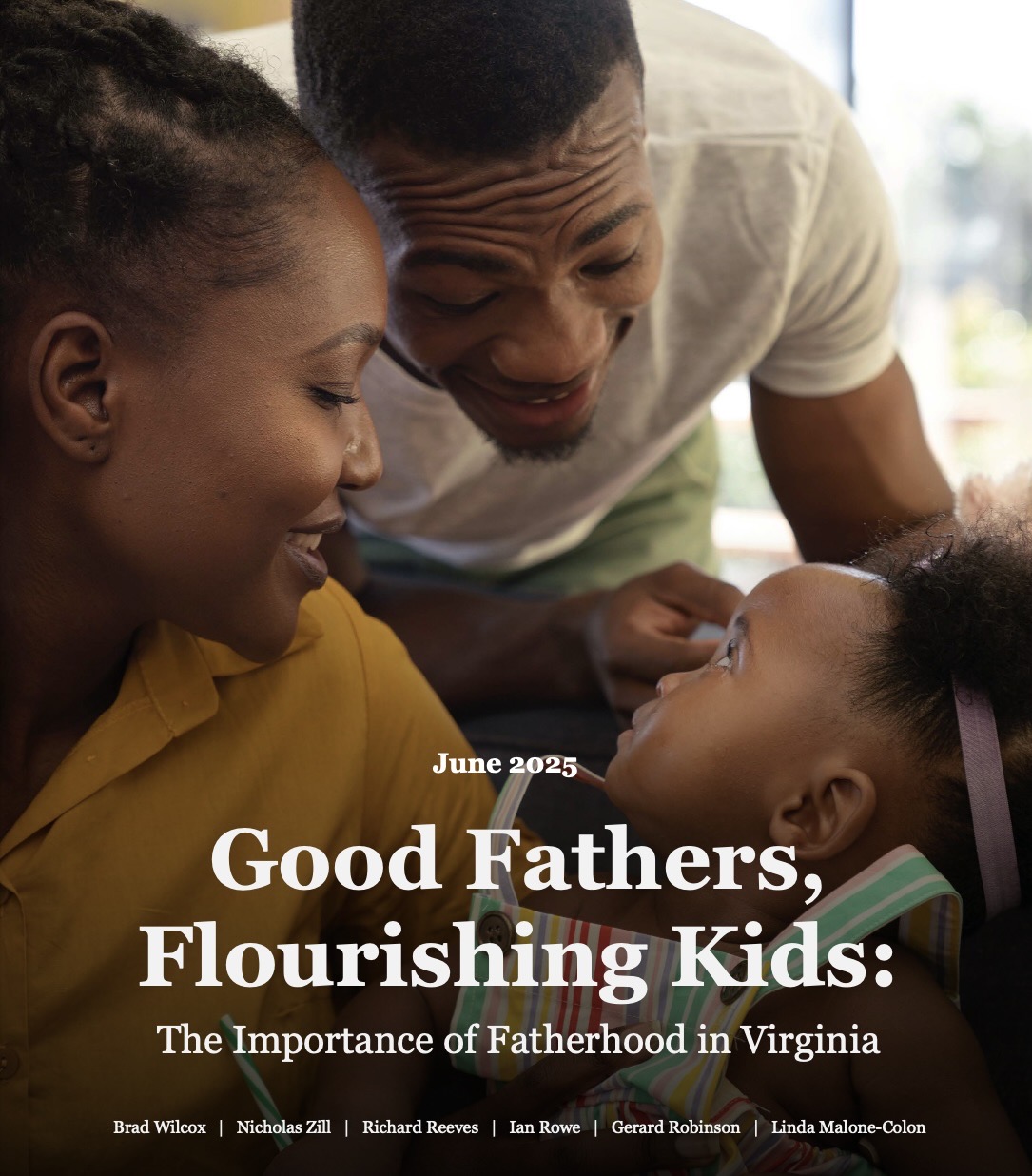EXECUTIVE SUMMARY
Children in Virginia are more likely to flourish when their fathers are engaged and/or present. This is one of the conclusions from Good Fathers, Flourishing Kids: The Importance of Fatherhood in Virginia, a new report from an intellectually diverse group of scholars at the University of Virginia, the American Enterprise Institute, the American Institute for Boys and Men, the Brookings Institution, the National Center for Black Family Life at Hampton University, the Institute for Family Studies, and the National Marriage Project. The report, which is sponsored by the National Marriage Project at UVA and the National Center for Black Family Life at
Hampton University, conveys five sets of key findings and six recommendations to strengthen fatherhood and families in Virginia:
- Boys and girls with involved dads in the Commonwealth get better grades, are less likely to have their parents contacted about behavioral or learning problems at school, and are less likely to be depressed. For instance, children with less involved dads are about 2 times more likely to have parents contacted about school problems and 3.7 times more likely to be diagnosed with depression.
- About 1 in 4 Virginia children live in a home without their biological fathers. Boys and girls who live in a father-absent home are only about half as likely to get good grades in school, about twice as likely to be depressed, and nearly three times more likely to have their parents contacted about school problems, compared to boys and girls who live in an intact (married or cohabiting) family with their father.
- There is no racial divide in academic performance or school problems between white and black children from intact families in the state. More than 85% of these children get mostly A’s and B’s and less than 1 in 5 have parents contacted about school problems. By contrast, white and black children in father-absent families do markedly worse in school: fewer than two-thirds of black and white children from such families get good grades, and more than 1 in 3 have parents contacted for school problems.
- Approximately 100,000 children in Virginia have a parent, usually a father, incarcerated. Children with a history of parental incarceration are about half as likely to get good grades in school, twice as likely to have their parents contacted for school problems, and five times as likely to be depressed, compared to children whose parents have never been incarcerated.
- We also spotlight some good news for Virginia when it comes to marriage and family life. Although the share of Virginia children living in married families fell from 85% in 1970 to 67% in 2023, the share of children living in a married family, and with their father, has leveled off in recent years. What’s also noteworthy is that the share of black children being raised in a married-parent family is ticking upwards, from 37% in 2015 to 40% in 2023.
- Given the importance of dads, we think that Virginia should follow other states, like Florida and Tennessee, that have or plan to launch major statewide efforts to strengthen fatherhood on a bipartisan basis. We outline six sets of policy ideas to strengthen fatherhood across Virginia that focus especially on boys, fathers, and families. They range from efforts to make state schools more boy friendly, to running a public service announcement (PSA) in the state spotlighting the contributions that fathers make to their children’s lives, to increasing the share of formerly incarcerated fathers who attend a parenting program before they are released, in conjunction with the state’s Stand Tall Initiative.

